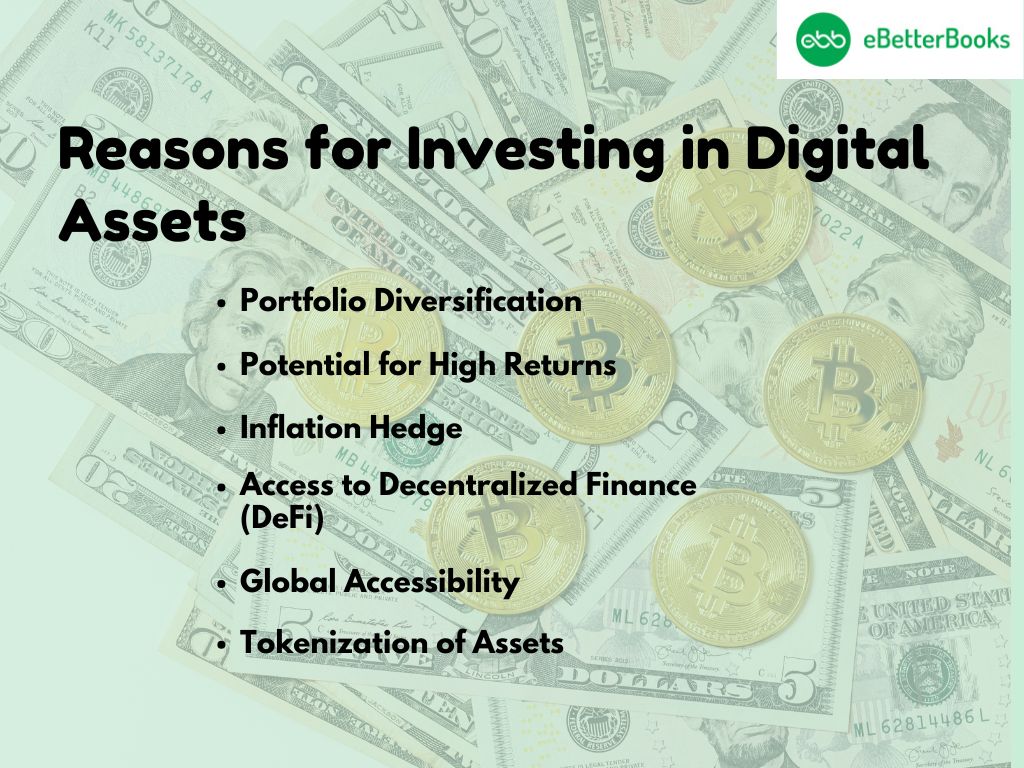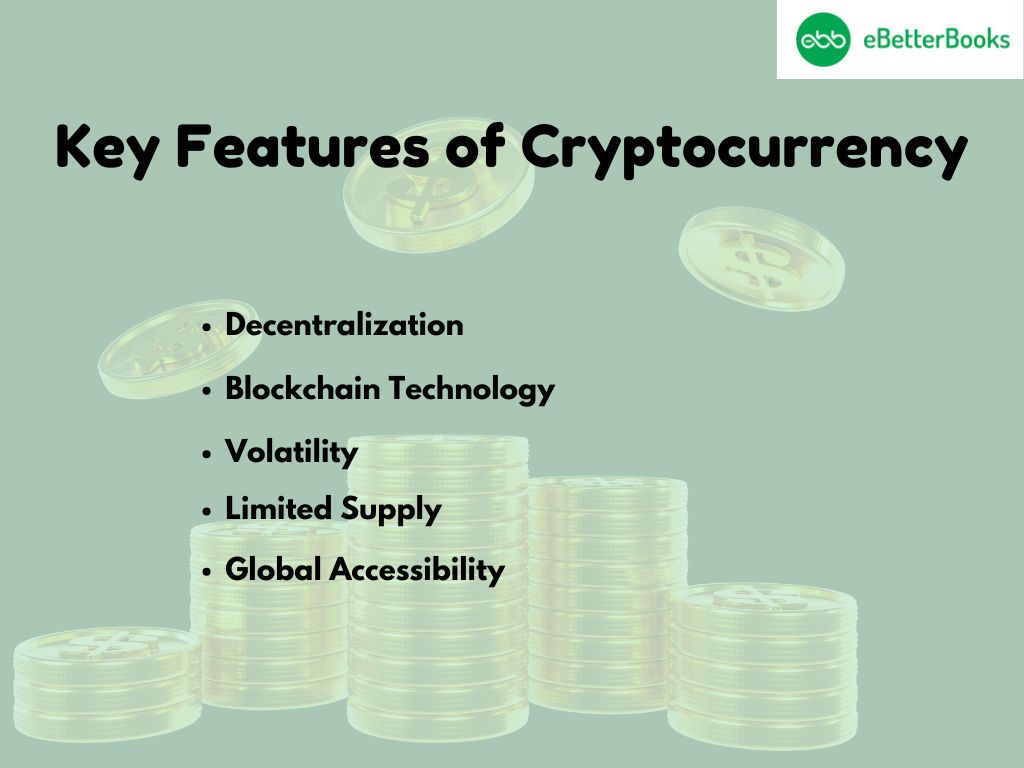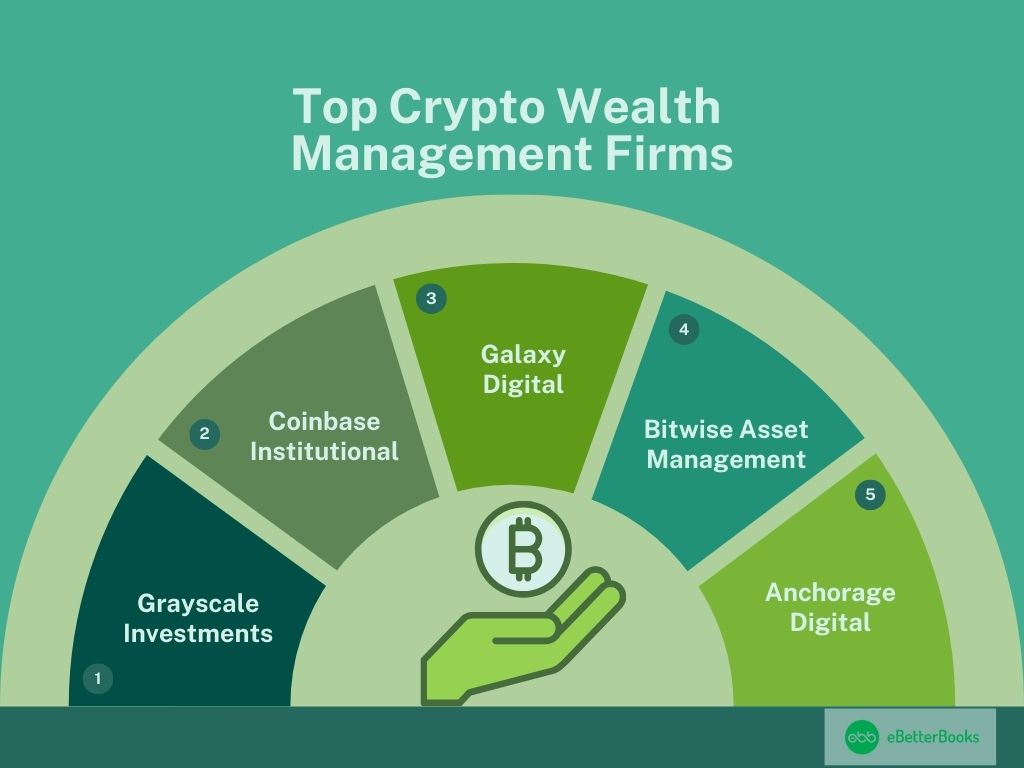Modern wealth management experiences transformative changes through the empowering role of cryptocurrency in finance. The traditional wealth management industry has centered its efforts on portfolio optimization through stocks, bonds, real estate, and conventional assets.
Today’s investors lock their wealth with digital assets, including stablecoins and Bitcoin and Ethereum, to increase the variety of their investments, guard against inflation, and pursue high-return opportunities. Wealth management through the innovation of cryptocurrency technology now revolutionizes asset preservation methods by offering potential breakthroughs while presenting various complications.
The adoption of digital assets by mainstream markets has made it essential for both experienced and beginner investors to understand cryptocurrency’s wealth preservation functions, investment strategies, and financial planning.
Reasons for Investing in Digital Assets

The digital currency has emerged quickly as a leading financial instrument in wealth management above traditional assets due to distinct investment benefits. Mainstream progress of digital assets drives high-net-worth individuals (HNWIs) together with institutional investors and financial advisors to see crypto’s potential for protecting wealth and growth. Here’s why crypto is becoming the top choice for wealth management:
- Portfolio Diversification: Cryptocurrencies show minimal links with standard financial investments, which include stocks and bonds, as well as real estate holdings. A portfolio that includes digital assets enables investors to distribute their exposure across multiple asset classes so they achieve better risk reduction. Crypto assets can deliver uncorrelated price expansion during economic downtimes.
- Potential for High Returns: Modern financial history shows that the cryptocurrency market produced some of its highest returns yet. The value of digital assets Bitcoin and Ethereum has exploded in recent years, drawing investors who want to achieve big gains with their portfolios.
- Inflation Hedge: Bitcoin and other cryptocurrencies reserve their value through an absolute maximum issuance, which acts as a defense against rising prices. Digital assets are investors’ preferred choice when they seek wealth protection against inflation caused by print-run distortions of fiat currencies.
- Access to Decentralized Finance (DeFi): Cryptocurrency holders have access to the developing DeFi space, which offers new financial products, such as loans and debt, along with investment functions, such as stakeholding and client farming services. Decentralized finance systems remove traditional business middlemen to cut expenses while delivering heightened transparency in transactions.
- Global Accessibility: Anyone with internet access can invest in cryptocurrencies as an alternative to traditional investments. Cryptocurrency systems let users transact between countries without money exchange hassles and steep remittance costs.
- Tokenization of Assets: Through cryptocurrency, individuals can turn real-world possessions, including property and artworks, into token-backed structures, which create fragment ownership opportunities. This breakthrough enables investment possibilities previously unreachable to investors operating below large corporation levels.
Understanding The Concept of Wealth Management
Wealth management is a financial planning discipline that provides specialized expertise to assist individuals, families, and businesses in enhancing their financial assets and development. Wealth management delivers an extensive collection of financial services, including investments and support for estate planning, tax advice, retirement preparation, and risk protection measures.
Core Components of Wealth Management
Investment Management:
- A wealth manager develops investment portfolios by choosing assets from stocks, bonds, mutual funds, and real estate content.
- Emphasizing capital preservation, steady growth, and risk-adjusted returns.
Estate Planning:
- The establishment of sound financial structures enables owners to pass their assets unproblematically to named beneficiaries.
- Through the strategic use of trusts along with wills and charitable foundations, people can minimize tax consequences.
Tax Optimization:
- People should plan tax-efficient strategies according to law and practice them effectively to decrease their tax bill.
- The process of selecting investments that deliver maximum tax efficiency serves to protect and preserve wealth.
Retirement Planning:
- Meeting financial needs during a person’s retirement period.
- Personal financial planning to create retirement funds in the future is combined with employer matching programs and targeted government benefits.
Risk Management:
- Strategic measures protect investments from market fluctuations and unexpected medical emergencies, which require financial resources to manage.
- Investors should see asset allocation strategies with insurance products to reduce their specific financial risks.
The Evolution of Wealth Management
For many years, traditional wealth management exclusively centered around physical property stocks and bonds, as well as fixed-income securities. Financial management strategies have undergone dramatic changes because of technological progress combined with investor perspectives shifting towards digital lifestyles.
- Digital Platforms: AI-based tools and robo-advisor technology offer investors tailored wealth management solutions at affordable rates.
- Access to Global Markets: Through this development, investors can easily distribute their assets across worldwide markets.
- Introduction of Digital Assets: The acceptance of digital assets represented by cryptocurrencies and blockchain-based components shows growing interest across wealth management platforms.
Traditional financial planning is now preparing for cryptocurrency integration because wealth management professionals treat this digital investment as professional portfolio components.
Cryptocurrency: A New Asset Class
Digital currency, also known as cryptocurrency, uses cryptographic mechanisms to maintain transaction protection and unit production management capabilities. It relies on decentralized blockchain networks rather than centralized systems, which power traditional financial instruments. In 2009, Bitcoin introduced the world’s first cryptocurrency, which now exists alongside hundreds of other digital currencies, including Ethereum, Ripple, and Litecoin.
Key Features of Cryptocurrency

- Decentralization: The system functions autonomously outside banking or government networks. It operates under a peer-to-peer system, using manual approval mechanisms to protect transaction transparency.
- Blockchain Technology: All transactions are securely recorded on a decentralized system named blockchain. The combination of blockchain technology reveals all activities while minimizing fraud attempts and maintaining full transparency and complete accountability.
- Volatility: The market value of cryptocurrencies fluctuates constantly due to interactions between changes in market demand or supply, governmental regulations, and economic conditions. This situation enables potentially high yields, yet it simultaneously creates exposure to substantial market risks.
- Limited Supply: Multiple digital currencies, such as Bitcoin, possess finite amounts that limit their measured supplies, preventing inflation. This feature led Bitcoin to become an alternative electronic form of a digital version of real gold.
- Global Accessibility: Digital currency exists within a network-free framework that provides universal access for internet users worldwide.
Cryptocurrency as an Investment Option

Cryptocurrencies are increasingly considered an asset class, offering unique benefits:
- Portfolio Diversification: The market relations between cryptocurrencies and traditional asset classes such as stocks and bonds are minimal. A useful aspect of cryptocurrency is its ability to reduce risks when markets experience downturns.
- Potential for High Returns: The original investors of Bitcoin and Ethereum generated massive exponential growth in their investments. The advantages of high market returns accompany substantial risks, which arise because of volatile market movements.
- Decentralized Finance (DeFi): Decentralized financial services, including lending services, borrowing options, and interest accrual, operate directly between users without needing intermediaries through cryptocurrency access. The growing DeFi ecosystem is represented through platforms such as Uniswap and Aave.
- Inflation Hedge: Cryptocurrencies having limited supplies, such as Bitcoin, hold defensive value against rising prices, specifically when financial instability arises.
Challenges of Cryptocurrency
Despite its potential, cryptocurrency faces challenges:
- Regulatory Uncertainty: The adoption and usage of cryptocurrencies become subject to regional regulation, which causes diverse levels of cryptocurrency acceptance in countries across the globe.
- Security Risks: Safeguarding protocols need to remain strong because hacking and fraud represent essential threats.
- Lack of Understanding: A significant portion of the investing population, as well as financial advisory professionals, remain unaware of the complexities of cryptocurrencies.
The Top Cryptocurrency Options for Wealth Management
The extensive world of cryptocurrency contains numerous unique digital assets that attract different investment opportunities. Investors seeking reliable cryptocurrency options alongside wealth managers need to understand the leading safe digital assets in this field.

Bitcoin (BTC): The Digital Gold
As the leader of all cryptocurrencies, Bitcoin is the first cryptocurrency discovered and recognized by users, who call it “digital gold.” The digital asset’s twenty-one million coin maximum supply, alongside its decentralized architecture, creates value-storage popularity. Cryptocurrency suits investors who need protection from inflation and are making long-term financial plans.
Ethereum (ETH): The Smart Contract Pioneer
Through its platform, users can build decentralized applications (DApps) and smart contracts. Many decentralized financial initiatives use the network, which gives it fundamental status in blockchain evolution. Ethereum’s transition to a proof-of-stake mechanism (Ethereum 2.0) has led to substantial improvements in energy efficiency across the network and expanded scalability attributes.
Stablecoins: Low-Volatility Options
Digital currency assets are linked to the US dollar function through projects like USDT and USDC. These digital assets operate as stable assets in currency exchanges and transaction networks to empower monetary settlements between traditional cryptosystems. The market provides moderate risk for investment seekers looking to access cryptocurrency values while minimizing volatility fluctuations.
Altcoins: Diversification Opportunities
- Cardano (ADA): Sustainable growth and scalability combine features that attract investors looking to protect the environment.
- Solana (SOL): The network operates at high speeds while charging minimal fees, which positions Solana to challenge Ethereum’s market position.
- Polkadot (DOT): Interoperable communication between different blockchain systems helps drive innovations for the crypto environment.
Tokenized Assets
Represent real-world assets, such as real estate, art, or commodities, on the blockchain. Fractional ownership policies should exist, expanding access to valuable real estate and financial instruments. Tokenization provides better access to wealth development opportunities and expanded investment options for all people.
De-Fi Tokens
The decentralized finance landscape presents two exemplary digital assets through Uniswap (UNI) and Aave (AAVE). The ecosystem provides exclusive opportunities to use yield farming alongside the provision of liquidity.
Integration of Cryptocurrency in Wealth Management

Wealth management practices now accept cryptocurrencies as a fundamental operational element. Progressive investors and institutions adopt cryptocurrencies for strategic implementations. Integrating cryptocurrencies is a key component of modern financial plans and investment strategies.
- Retirement Funds: Certain retirement plans featuring cryptocurrency now provide portfolio investment options within 401(k) plans and self-directed IRAs. Clients can now use Fidelity Investments’ crypto-based retirement products to distribute their retirement savings between traditional financial assets and digital currencies.
- Crypto-Based Exchange-Traded Funds (ETFs): ETFs that focus on cryptocurrencies enable normal investors to participate in digital assets without physically holding them. These solutions create investment opportunities through secure, liquid formats, helping wealth managers expand their asset bases.
- Private Wealth Management Services: Private, professional wealth management services for digital assets fill a demand from high-net-worth owners. Confined management organizations design personalized structures that disperse assets through Bitcoin, Ethereum, and stablecoins together with DeFi structures.
- Balancing Risk and Reward: Wealth managers combine cryptocurrencies’ risky-high-play pension benefits alongside bonds’ traditional safety through a smart distribution strategy. Risk-based asset allocation strategies become possible through portfolio rebalancing methodology combined with risk assessment modeling tools.
- Security and Custody Solutions: Cryptocurrency requires wealth management solutions, including secure crypto storage options between cold wallets and institutional-grade platforms. Large-scale investors can safely store their digital assets by utilizing insured custody platforms at BitGo and Coinbase Custody.
- Blockchain-Enabled Wealth Management Platforms: Blockchain-based platforms establish transparent systems and achieve faster processes at reduced operational expenses. Smart contracts make wealth management more efficient by automating tasks, including dividend payments and asset movement.
- Education and Advisory Services: Wealth management experts today help their clients better understand the potential benefits and risks associated with cryptocurrency investments. Digital asset advisors specializing in digital currencies provide personalized guidance to enable better investment choices for their clients.
Top Crypto Wealth Management Firms
The maturation of the cryptocurrency market led to the creation of specialist firms in crypto wealth management. These companies target retail and institutional users through strategic digital asset solutions and personalized plans.

- Grayscale Investments: Grayscale Investments’ worldwide portfolio makes it one of the leading digital asset management companies. The company delivers various investment products, such as GBTC and Ethereum Trust, which let investors interact with cryptocurrencies while maintaining distance from direct ownership.
- Coinbase Institutional: The Coinbase Institution delivers managed services for institutional clients with features spanning from secure storage to trading to analytical data tools. Wealth management practitioners rely on Coinbase Institutional because of its robust safekeeping capabilities combined with extensive market liquidity access.
- Galaxy Digital: As a prime digital asset wealth management company, Galaxy Digital runs a comprehensive offering that extends from investment banking to trading to asset portfolio management. Blockchain technology and cryptocurrency markets form a core competency of this firm.
- Bitwise Asset Management: Bitwise’s strategy of delivering cryptocurrency index funds allows wealth managers to access diversified portfolio options. The Bitwise 10 Crypto Index Fund functions as the company’s main product, allowing investors to monitor the performance of the ten largest cryptocurrencies based on their market value.
- Anchorage Digital: The regulated platform Anchorage Digital serves institutional investors by managing secure digital asset storage and handling trading and financing operations. It is ready to serve institutional investors who need strict compliance features and enhanced security standards.
Risks and Mitigation Strategies
The unique benefits of cryptocurrency wealth management encounter critical risks, which demand appropriate safety measures for successful execution. The adoption of cryptocurrencies into wealth portfolios depends on thorough risk identification and strong risk mitigation methods.
Volatility Risks
- Challenge: Cryptocurrency market prices experience severe volatility due to unpredictable and fast-moving dynamics.
- Mitigation: Wealth holders should allocate their investments using stablecoins (including USDT and USDC) and less volatile assets. The dollar-cost averaging method provides a way for investors to minimize the effect of market value changes.
Regulatory Uncertainty
- Challenge: Various regions have brought new regulatory changes to cryptocurrencies, creating market uncertainty among investors.
- Mitigation: Investors should track current and future regulatory changes and partner with compliance-oriented wealth management companies. To provide legal security, they should make transactions through exchanges that maintain both regulations and licenses.
Security Risks
- Challenge: The digital asset space remains exposed to hackers, who carry out cyberattacks, execute phishing scams, and steal wallets.
- Mitigation: Clients should use institution-grade protection services and multi-signature wallet storage alongside cold storage systems. Clients need training in secure crypto storage techniques and should limit their total crypto holdings on digital exchanges.
Lack of Liquidity
- Challenge: Altcoin investors face trading obstacles because most alternative cryptocurrencies maintain insufficient liquidity, which hinders favorable trading volumes.
- Mitigation: Choose reliable cryptocurrencies that possess high market capitalization and poor trading volume records. Perform asset liquidity assessment procedures before final asset purchases.
Technological Risks
- Challenge: Blockchain technology behind cryptocurrency operations continues its development path, exposing platform vulnerabilities and technical instability risks.
- Mitigation: Check the authenticity of blockchain projects while having confidence in assets that demonstrate robust technological foundations. Spreading cryptocurrency network investments among different blockchain platforms will reduce the risk of a single network failure.
Market Manipulation
- Challenge: Heroic investors (also known as whales), together with orchestrated pump-and-dump operators, expose the cryptocurrency market to manipulation patterns through united efforts.
- Mitigation: Corresponding investments should target data-supported analysis and avoid speculative purchases of low-cap cryptocurrencies. Join forces with wealth management services that have chosen to implement top-tier risk-tracking platforms.
Taxation and Reporting Risks
- Challenge: The different and nonexistent taxation rules between jurisdictions regarding digital assets produce tax reporting difficulties and compliance issues.
- Mitigation: To comply with cryptocurrency regulations, you must find tax professionals who understand regulation standards and create comprehensive records of your transactions.
Future of Cryptocurrency in Wealth Management

As technology progresses alongside regulatory adjustments and marketplace integration, cryptocurrency will see substantial growth in its role in wealth management. Below are some key trends and projections shaping the future of crypto in wealth management:
- Mainstream Adoption: Community acceptance has made cryptocurrencies emerge as essential wealth management instruments. Broader community acceptance is demonstrated through three factors. Bitcoin ETF launches and growing presence in retirement funds alongside institutional recognition.
- Advancements in Blockchain Technology: New blockchain technology developments including Ethereum 2.0 along with Layer 2 solutions and network interoperation capabilities, will enhance cryptocurrency performance and improve the user experience. Better technological innovations will expand investor participation and open possibilities for fresh use scenarios.
- Rise of Decentralized Finance (DeFi): The revolutionary power of decentralized finance platforms will introduce lending services alongside staking solutions and decentralized asset management tools. Smart contracts and automated protocols create efficiency while reducing costs because they serve wealth management professionals and their clients equally.
- Environmental Sustainability: Ethereum’s implementation of proof-of-stake (PoS) demonstrates how the cryptocurrency sector works to resolve ecological issues. ESG-focused wealth management organizations will be drawn to sustainable cryptocurrencies because they match their environmentally conscious selection criteria for clients.
- Tokenization of Real-World Assets: Due to asset tokenization technology, the number of digital assets, such as real estate combined with art holdings and commodities, will increase. This new investment trend will allow high-value asset investors to diversify their portfolios through fractional ownership.
- AI and Machine Learning in Crypto Wealth Management: Through AI-driven tools, wealth management professionals will acquire better precision in studying market tendencies, enhancing portfolio optimization, and handling risks effectively. Through predictive analytics, investors will make better decisions even when market volatility makes predictions challenging.
Conclusion
Modern wealth management now includes cryptocurrency as an integral element that developed from its early status as a specialized technological product. The wide-ranging potential of cryptocurrencies carries various challenging risks that produce market volatility alongside fluctuating regulations and security threats.
The current market uncertainty requires wealth managers and investors to establish smart risk-reduction solutions and regularly monitor market movements to make well-informed decisions. The wealth management industry’s commitment to cryptocurrency depends on technological progress, stronger regulations, and market acceptance.
Specialized crypto wealth management firms, combined with upcoming market analysis, allow investors to support crypto’s potential while resolving the risks associated with this changing asset class.
